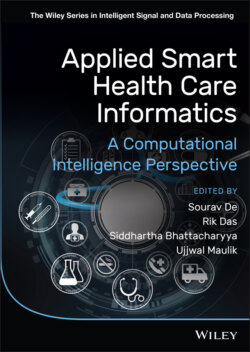Читать книгу Applied Smart Health Care Informatics - Группа авторов - Страница 17
1.4 Cloud Computing in Healthcare
ОглавлениеThere are numerous advantages and benefits of cloud computing in health care as it stores data on demand and reduces operational costs for health care providers such as hospitals and clinics (Rostrom and Teng, 2011). The cloud also supports electronic health records (EHRs), mobile applications that are used for medical concern applications. The cloud has made access to patient's medical history easier for doctors, and patients can now have a clear, in depth track of their medical process as well as track their appointments, results, and reports. Traditional EHRs need a team of medical staff, physicians, medical administrator, and IT members for their smooth processing and management; however, cloud EHRs do not require highly skilled IT members or professionals to develop and manage the system. Cloud EHRs make it easier to access data from anywhere than traditional EHRs system. Cloud computing works on either a one‐time or monthly payment method and is less time consuming, whereas tradition EHR systems are costly and time‐consuming. Cloud EHR systems also ensure that data are always kept safe in the cloud and can be retrieve when required (Mell and Grance, 2011).
Cloud Computing is significant in the health care sector as it supports big data analytics that are being used to improve decision support systems and contribute to therapeutic strategies in beneficial ways.
